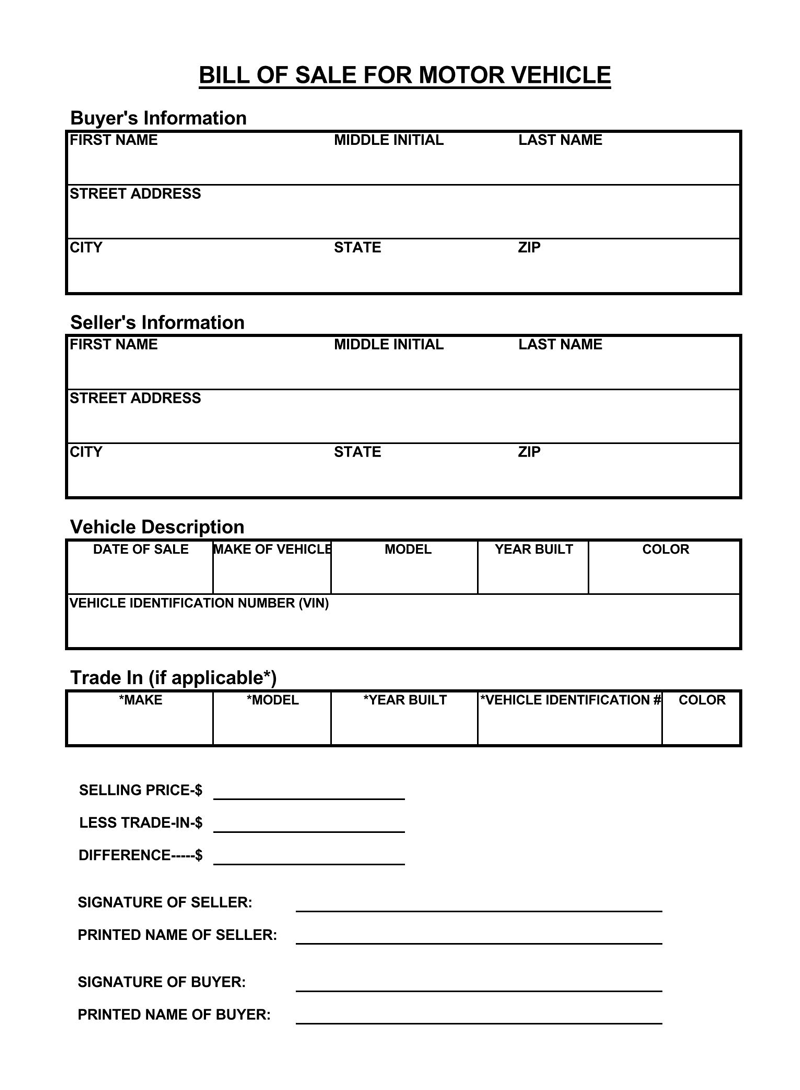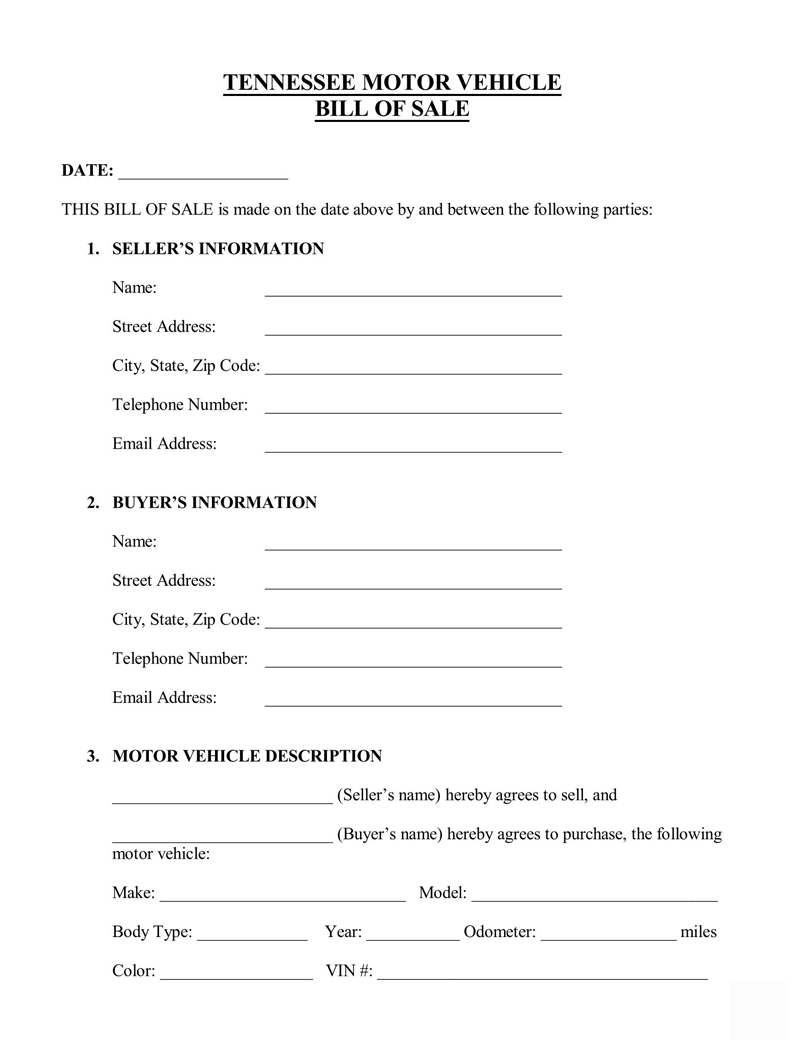When buying or selling a motor vehicle in the state of Tennessee, you will need to complete a Tennessee Bill of Sale.
A Tennessee Bill of Sale not only shows proof and the details of the sale but also protects the seller and the buyer from any liability issues that may crop up.
EXAMPLE
If the seller has any outstanding tickets, the buyer can use them to show that they were not the owner at the time.
It is also required when the buyer needs to title and register the vehicle in their name. In order for the document to be valid, both the buyer and seller must sign the bill of sale. Having the document notarized is not a requirement unless your county Treasurer’s office requests it.
You will also need to provide an odometer reading by filling out Form RV-F1317001 (Odometer Disclosure Statement). If you are having someone other than yourself register the vehicle for you, they will need to complete a Power of Attorney (Form RV-F1311401).
Free Bill of Sale Forms


Making a Tennessee Bill of Sale
You can get a bill of sale from the Tennessee County Clerk’s website. Alternatively, you can create your own.
It must include the following details:
- Details of the buyer, which must include their full legal name and address
- Details of the seller, which must include their full legal name and address
- Details must include the date of sale, make, model, year, color, and VIN
- Trade-in details if applicable: should include the make, model, year, color, and VIN of the trade-in vehicle
- The price that it was sold for
- Signatures of both the seller and the buyer
Registering a Vehicle in Tennessee
By law, in order to operate a vehicle on public roads, you must have it properly registered. The state of Tennessee does not specify a time frame in which to register a vehicle due to some counties requiring emissions testing. You can apply for temporary plates while going through the registration process.
If you are registering a vehicle for the first time, it will need to be done via your local County Clerk’s Office in person or by mail.
You can renew registration in several ways:
- Online vis the County Clerk’s website
- Using one of the many Self-Service Kiosks
- Using the DMV’s smartphone app, which can be downloaded through your app store
- By post through your local County Clerk’s Office
- In-person at your local County Clerk’s Office
If you are a new resident of Tennessee or have recently relocated, you will need to visit your local County Clerk’s Office to obtain a title.
To do this, you will need to provide:
- Proof of Residency/Proof of ID
- A current out-of-state registration
- Out-of-state title or the contact details of the lien holder if applicable
Emissions Testing
As per Tennessee Code § 55-17-127, some counties in Tennessee will require you to have an emissions test done before you can register and title the vehicle. This is required for vehicles that have a model year of 1975 or newer and that are 10,500 pounds or under gross weight.
The counties that require emissions testing are:
- Hamilton County
- Sumner County
- Rutherford County
- Wilson County
- Williamson County
Emissions testing can be done via the Department of Environment and Conservation. Once your vehicle has passed its emissions test, you can proceed to register it at your local County Clerk’s Office.
You will need to provide the following documentation:
- A signed Tennessee Bill of Sale (can be acquired at the county clerk’s office)
- A current and valid Driver’s License
- Certificate of Title, which must be signed over to the new owner. If the vehicle is new, you will need the Statement of Origin from the manufacturer
- A completed Odometer Disclosure Form (Form RV-F1317001)
- For leased vehicles or if you are having someone register it for you, a Power of Attorney form must be completed (Form RV-F1311401)
- Certification of Ownership – For vehicles that are over 30 years old or have a value of under $3,000
- Funds to pay for Registration Fees
- Proof of liability insurance that meets the Minimum Requirements:
- Cover of $25,000 for death or injury, per individual, per incident
- Cover of $50,000 for death or injury, total per incident
- Cover of $15,000 for damage to property, per incident









